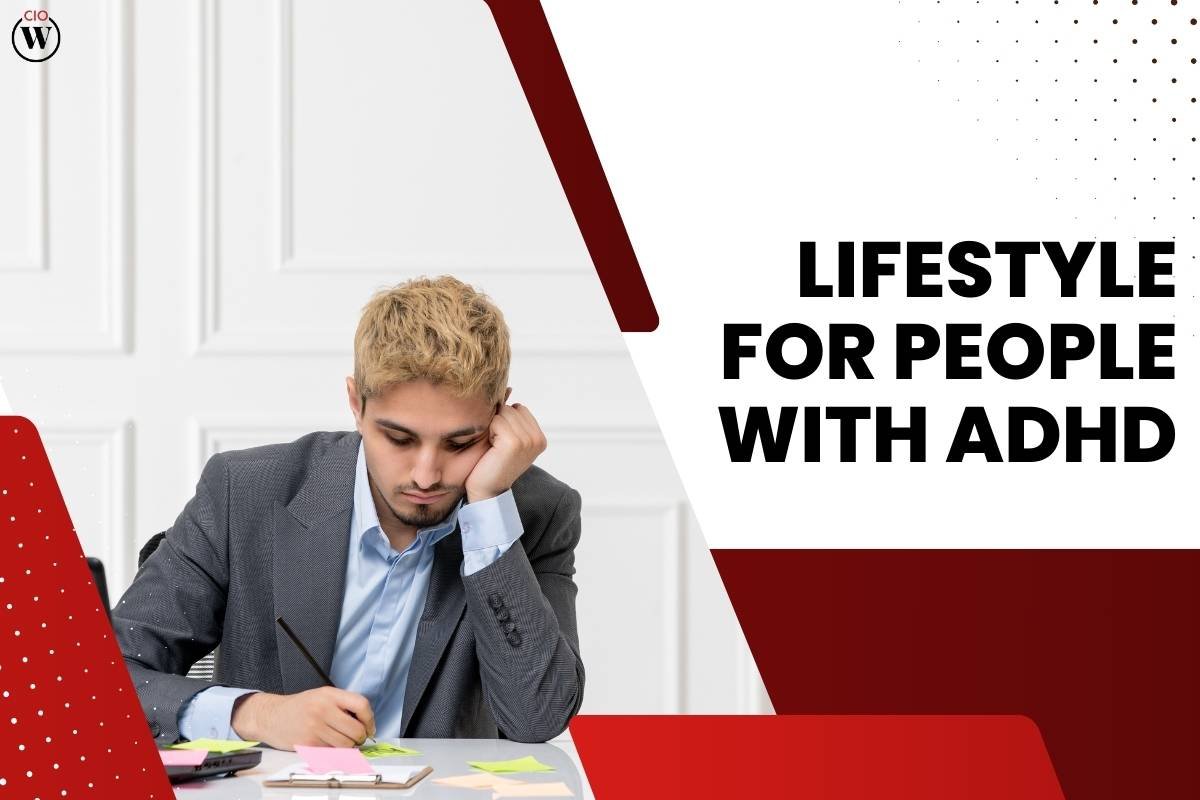Living with Attention Deficit Hyperactivity Disorder (ADHD) presents unique challenges, but with the right lifestyle adjustments, individuals with ADHD can lead fulfilling and successful lives. Understanding and implementing effective strategies can make a significant difference in managing symptoms and improving overall well-being. This article explores various aspects of lifestyle for people with ADHD, offering practical tips and insights to help navigate daily life more smoothly.
Understanding ADHD
ADHD is a neurodevelopmental disorder characterized by symptoms of inattention, hyperactivity, and impulsivity. It affects both children and adults, and while the symptoms may vary, the impact on daily life can be profound. A key component of managing ADHD effectively is recognizing that lifestyle choices play a crucial role in symptom management.
The Importance of Routine
One of the most effective lifestyle changes for people with ADHD is establishing a consistent routine. Structure and predictability can significantly reduce the chaos and stress often associated with ADHD. Here are some tips to create a beneficial routine:
- Set Clear Daily Schedules: Create a daily schedule that includes specific times for waking up, eating, working, and sleeping. Stick to this schedule as closely as possible to build a sense of order.
- Use Visual Aids: Calendars, planners, and to-do lists can help keep track of tasks and responsibilities. Visual aids serve as constant reminders and reduce the likelihood of forgetting important activities.
- Break Tasks into Smaller Steps: Large tasks can be overwhelming for individuals with ADHD. Breaking them down into smaller, manageable steps can make them more achievable and less daunting.
Healthy Eating Habits
Diet plays a significant role in the lifestyle for people with ADHD. Certain foods and nutrients can influence brain function and behavior. Here are some dietary considerations:

- Balanced Diet: Ensure a balanced intake of proteins, carbohydrates, and healthy fats. Foods rich in omega-3 fatty acids, such as fish, flaxseeds, and walnuts, are particularly beneficial for brain health.
- Regular Meals: Eating regular, balanced meals helps maintain stable blood sugar levels, which can prevent mood swings and improve concentration.
- Avoiding Sugar and Additives: Some studies suggest that reducing sugar and artificial additives in the diet can help minimize hyperactivity and improve attention span.
Physical Activity
Regular physical activity is an essential part of a healthy lifestyle for people with ADHD. Exercise has been shown to improve focus, reduce impulsivity, and enhance mood. Here are some tips to incorporate physical activity into daily life:
- Choose Enjoyable Activities: Engage in physical activities that are enjoyable and varied to maintain interest and motivation. This could include sports, dancing, swimming, or even yoga.
- Routine Exercise: Aim for at least 30 minutes of moderate exercise most days of the week. Establishing a routine can make it easier to stick to a regular exercise schedule.
- Incorporate Movement: Find opportunities to move throughout the day, such as taking short walks during breaks, stretching, or using a standing desk.
Mindfulness and Relaxation Techniques
Stress and anxiety are common in individuals with ADHD. Incorporating mindfulness and relaxation techniques into the lifestyle for people with ADHD can be incredibly beneficial. These practices help calm the mind and improve focus. Here are some suggestions:
- Mindfulness Meditation: Practicing mindfulness meditation can help increase awareness and concentration. Start with short sessions and gradually increase the duration.
- Deep Breathing Exercises: Deep breathing exercises can quickly reduce stress and anxiety. Practice deep breathing techniques several times a day, especially during stressful situations.
- Yoga and Tai Chi: These practices combine physical movement with mindfulness, providing both physical and mental benefits. They can help improve focus, flexibility, and overall well-being.
Sleep Hygiene
Adequate sleep is crucial for managing ADHD symptoms. Poor sleep can exacerbate inattention, impulsivity, and hyperactivity. Improving sleep hygiene is a vital part of the lifestyle for people with ADHD. Here are some tips:

- Consistent Sleep Schedule: Go to bed and wake up at the same time every day, even on weekends, to regulate the body’s internal clock.
- Create a Relaxing Bedtime Routine: Establish a calming pre-sleep routine, such as reading a book, taking a warm bath, or practicing relaxation techniques.
- Limit Screen Time: Reduce exposure to screens at least an hour before bedtime. The blue light from screens can interfere with the production of melatonin, the hormone that regulates sleep.
Organizational Strategies
Staying organized is often a challenge for individuals with ADHD. However, with the right strategies, it is possible to create an organized and efficient lifestyle for people with ADHD. Here are some tips:
- Declutter Regularly: Regularly declutter living and working spaces to reduce distractions and create a more organized environment.
- Use Organizational Tools: Utilize tools such as labeled bins, shelves, and filing systems to keep items in order. Digital tools, such as apps for task management, can also be helpful.
- Set Priorities: Prioritize tasks and focus on completing high-priority items first. This can prevent feeling overwhelmed by a long to-do list.
Professional Support
Seeking professional support is an important aspect of managing ADHD. This support can come from various sources and contribute to a comprehensive lifestyle for people with ADHD. Here are some avenues to consider:
- Therapists and Counselors: Behavioral therapy and counseling can help individuals develop coping strategies and improve their organizational and social skills.
- ADHD Coaches: ADHD coaches specialize in helping individuals with ADHD develop personalized strategies to manage their symptoms and achieve their goals.
- Support Groups: Joining support groups provides a sense of community and allows individuals to share experiences and strategies with others facing similar challenges.
Medication Management
For many individuals with ADHD, medication is a key component of symptom management. However, medication alone is often not enough. Incorporating medication into a broader lifestyle for people with ADHD can enhance its effectiveness. Here are some tips:

- Adherence to Prescriptions: Take medications exactly as prescribed by a healthcare provider. Consistency is crucial for managing symptoms effectively.
- Monitor Effects: Keep track of any side effects or changes in symptoms. Regular communication with a healthcare provider ensures that the medication is working as intended and allows for adjustments if needed.
- Complementary Strategies: Combine medication with other lifestyle strategies, such as those mentioned above, for a more comprehensive approach to managing ADHD.
Building a Supportive Environment
Creating a supportive environment at home, school, or work is essential for a successful lifestyle for people with ADHD. This involves clear communication, understanding, and appropriate accommodations. Here are some suggestions:
- Educate Family and Friends: Educate family members and friends about ADHD to foster understanding and support. This can lead to a more empathetic and accommodating environment.
- Set Clear Expectations: Clearly communicate expectations and responsibilities to reduce misunderstandings and create a structured environment.
- Seek Accommodations: In educational or work settings, seek appropriate accommodations, such as extended time for tasks, flexible schedules, or quiet workspaces, to help manage ADHD symptoms effectively.
Conclusion
Living with ADHD requires a multifaceted approach that encompasses various aspects of daily life. By adopting a structured routine, maintaining a healthy diet, incorporating regular physical activity, practicing mindfulness, ensuring adequate sleep, utilizing organizational strategies, seeking professional support, managing medication effectively, and creating a supportive environment, individuals with ADHD can significantly improve their quality of life. Each of these components plays a vital role in shaping a lifestyle for people with ADHD that promotes well-being, productivity, and personal fulfillment.
Also read: ADHD Symptoms And Treatment: A Comprehensive Overview









